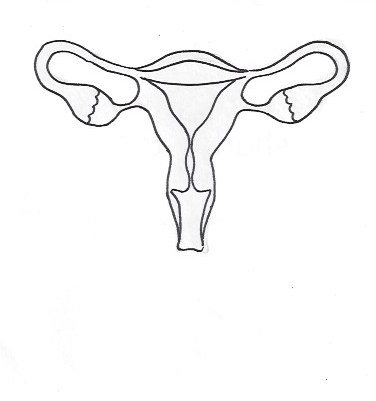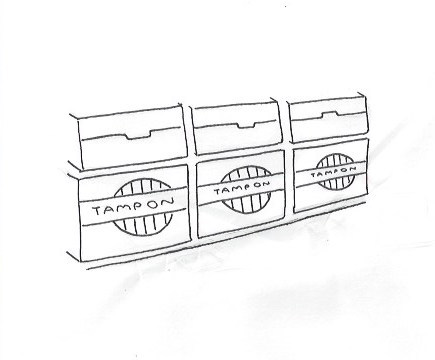A bloody tax

The controversial “tampon tax” was upheld in California this past September after Governor Jerry Brown vetoed a bill that would have abolished the sales tax on feminine hygiene products. The California sales tax code taxes all items, but provides exemptions for items that are deemed essential, such as food, clothes, and prescription medicine. Feminine hygiene products are not exempt from the sales tax, leading to backlash from many who believe that they are essential items and should not be taxed, as demonstrated in a petition to abolish the tampon tax that has over 64,000 supporters.
Assembly member Cristina Garcia, the author of the measure to remove feminine hygiene products from the California sales tax code, said in a press release in January 2016 that the tax is “a gender injustice. Women have no choice to buy these products, and so the economic effect is only felt by women.” According to the same press release, females in California pay $7 a month in taxes on tampons and pads, on average, for about forty years, which is $3360. Urban’s Students for Women’s Equality and Rights affinity group (SWEAR) member Imogen Budetti (‘18) said, “the expense is taking a toll on impoverished women. It may not be a lot to us, but to someone in a lower economic class, that money could have gone someplace else.”
Another SWEAR member, Hannah Platter (‘18) said, “Everyone should have access [to feminine hygiene products.] There is a lack of consciousness about the women living on streets or shelters not having access to things that most women take for granted.” The economic challenges of paying taxes on pads and tampons is compounded by the fact that many federally funded programs do not provide adequate access to feminine hygiene products.
In an August 2014 article for the Guardian, columnist Jessica Valenti said, “In the United States, access to tampons and pads for low-income women is a real problem, too: food stamps don’t cover feminine hygiene products, so some women resort to selling their food stamps in order to pay for ‘luxuries’ like tampons.” Valenti argues that tampons and pads should be treated as health care items.
Supporters of the “tampon tax” claim that if the tax were repealed, the loss of revenue would result in cuts on government programs that help low-income women. Fearing the loss of tax dollars, Governor Brown vetoed this bill along with one that would exempt diapers from the sales tax, and said, “tax breaks are the same as new spending— they both cost the General Fund money…This is even more important when the state’s budget remains precariously balanced.”
In total, women in California pay $20 million in taxes on tampons and pads annually. In a piece supporting the tampon tax, the Los Angeles Times editorial board wrote, “The state Board of Equalization estimates that if the diaper and tampons bills were to pass, they would cost state and local governments about $56 million a year. And when budget hits are that large, those most likely to pay for it are the people who rely on government programs and aid.” The board suggests there are more effective ways to help low-income women, such as “targeted subsidies,” which would directly help low-income women.
Feminine hygiene products do not have an additional tax to sales tax; they are simply not among the tax-exempt items. In an interview with CNN, Kim Reuben, a state and local public financing senior fellow at the Urban Institute said, “We tax toilet paper. We tax soap. We tax most
things. I don’t think this is a plot to burden women.”
However, in the January 2016 press release by Garcia’s office, Assembly member Ling Ling Chang, who is co-authoring the bill to exempt feminine hygiene products from the sales tax said, “Our government is imposing a charge exclusively on women by forcing them to pay extra for the ‘privilege’ of a health necessity.” Unlike taxes on soap or toilet paper, this tax exclusively affects women. Chang and Garcia both believe that pads and tampons are a right –not a privilege–and should be treated accordingly by the sales tax.
Garcia believes that the stigma around talking about periods, especially in a predominately male legislature, is one reason why the tax still exists. In an interview with the Washington Post, she said, “the reality is, these institutions of power are male-dominated. It’s either they’re not thinking about it, or they’re afraid to approach it.” In Garcia’s experience, periods are not a topic that many male lawmakers think about or feel comfortable discussing.
Platter (‘18) said, “There is a stigma around periods, and [taxing feminine hygiene products] tells women that their problems/bodies are not as important as a man’s. Periods go unacknowledged by lawmakers, mainly wealthy men.” SWEAR, Urban’s affinity group for female identified students, has addressed the stigmatization of periods. Destigmatizing periods will open up discussions around the accessibility of tampons and pads, a reality that women live with every month. SWEAR member Belle Davis (‘19) said, “[The tax] is offensive, treating more than half of the population like their needs are not important.”


